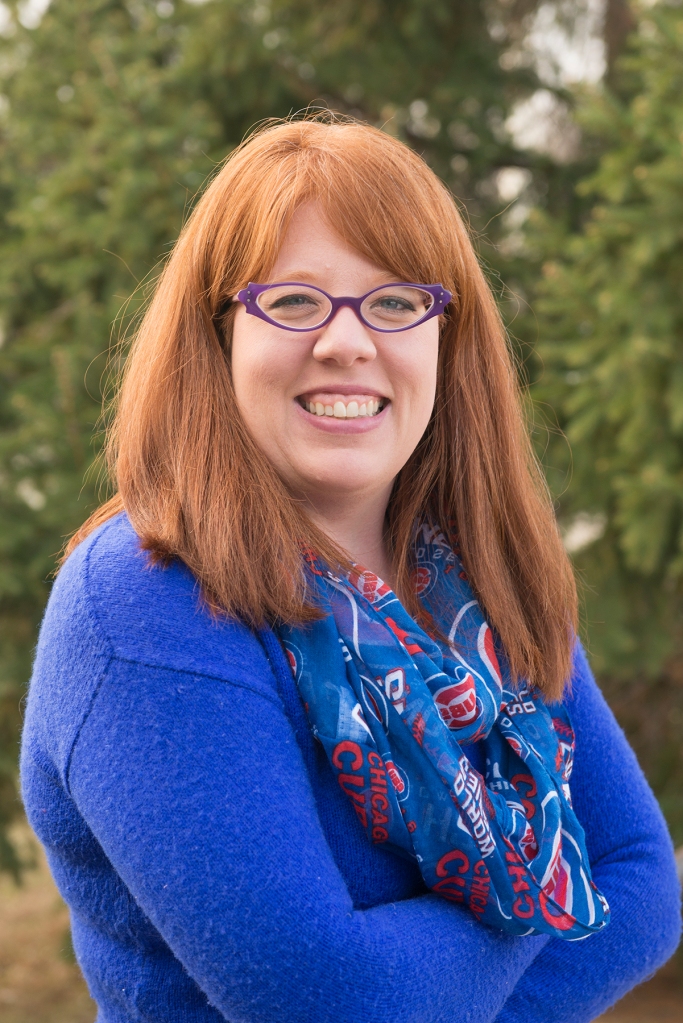Read Time: 4 minutes
The Meet Your Steering Committee Series allows the section membership to better get to know the Committee. For more entries, click here.
April Anderson-Zorn is an associate professor and University Archivist at Illinois State University. Anderson-Zorn holds an MA in History from the University of Central Florida, an MLIS from Florida State University, maintains a Digital Archives Specialist certificate through the Society of American Archivists, and is a certified archivist. Anderson-Zorn is active in SAA and the Midwest Archives Conference, currently serving as Chair of the SAA College & University Archives Section and as a District 5 Key Contact. Anderson-Zorn advocates and publishes on mental health awareness and representation for archives professionals as well as topics on unique outreach initiatives for hard-to-access repositories.

We’ve done so much these past few years! Thanks to the leadership of our Chairs, Past-Chairs, Vice-Chairs, and Steering Committee members, we’ve been able to bring awareness to the mental health needs of our members, create projects to address immediate needs of our quickly changing profession, [and] identify specific issues currently facing academic archivists.
Why or how did you find your way to becoming an archivist?
I got into archives through theatre. I worked as props master/artisan for several years while attending school and working odd jobs. I joked that I needed better healthcare, so I switched to history. But the real story is that my already bad eyesight got worse, and I realized it one day during summer stock – or maybe finally admitted it to myself. I was ripping a piece of lauan on a table saw, and I got scared because I couldn’t entirely see what I was doing. That’s when I decided I needed to switch careers – you can’t be safe if you’re scared working with power tools. After my summer contract ended, I started grad school for a history master’s and happened to get a job as a grad assistant in the archives. I was hooked that very first day!
Can you share a success you’ve had in your repository recently?
Very long, long story short, we were told late last year that the whole repository was going to move in a handful of months. We’re in an off-site facility, and the plan was to move us even farther away from campus. That plan has since changed, and while we don’t know where we’re going, we’ve been preparing to pick up and go. We’ve got two amazing archivists on staff at the Rayfield Archives, Jenna Self and Julie Neville, who have prepared us in record time. Jenna did a lot of the (literal) heavy lifting to get odd-shaped collection boxes and some neglected accession shelves boxed and ready for pallets when the time comes. We don’t know what our next steps will be, but we’re ready when the call comes.
What current or future project are you most excited about in your archives?
See above! We’d really like to be closer to campus to give our students and researchers easier access to the materials. Education about archives and the histories of our campus communities is one of our main goals. Many of our student researchers do not have access to private vehicles. We’re also not accessible via public transportation. As many of us in academia know, it’s expensive and often cost-prohibitive for students to simply ‘grab a rideshare’ to travel to needed locations in their towns. We want to make access to our materials easy and equitable. Moving us closer to our user base is a positive step, one that we’ve been advocating for many years.
What are some of the challenges you face in your position?
The location of our repository and connecting it to users certainly has been a challenging obstacle since my arrival at Illinois State University in 2011. I am frequently on campus, at donor homes, or in the community, which has taken a toll on my vehicles through the years. I often personally transport boxes of materials from Archives to campus classrooms, lead educational sessions and haul them back again multiple days a week (as I call it, arm day!). I also had my first child in May 2020, so learning to be a working Mom during a pandemic has brought many new challenges.
What projects do you envision the section undertaking during your time on the steering committee?
We’ve done so much these past few years! Our Steering Committee, particularly in the early days of the pandemic, has been a strong and stable force to be reckoned with. Thanks to the leadership of our Chairs, Past-Chairs, Vice-Chairs, and Steering Committee members, we’ve been able to bring awareness to the mental health needs of our members, create projects to address immediate needs of our quickly changing profession, identify specific issues (like tenure and promotion) currently facing academic archivists, and keep communication among the Section flowing with our monthly coffee chats. I’ll confess that I am particularly interested in the work of the Impostor Phenomenon survey, as mental health is a topic I often address in relation to our profession. And I know incoming leadership will continue the good and important work that the Section has been championing for many years.
